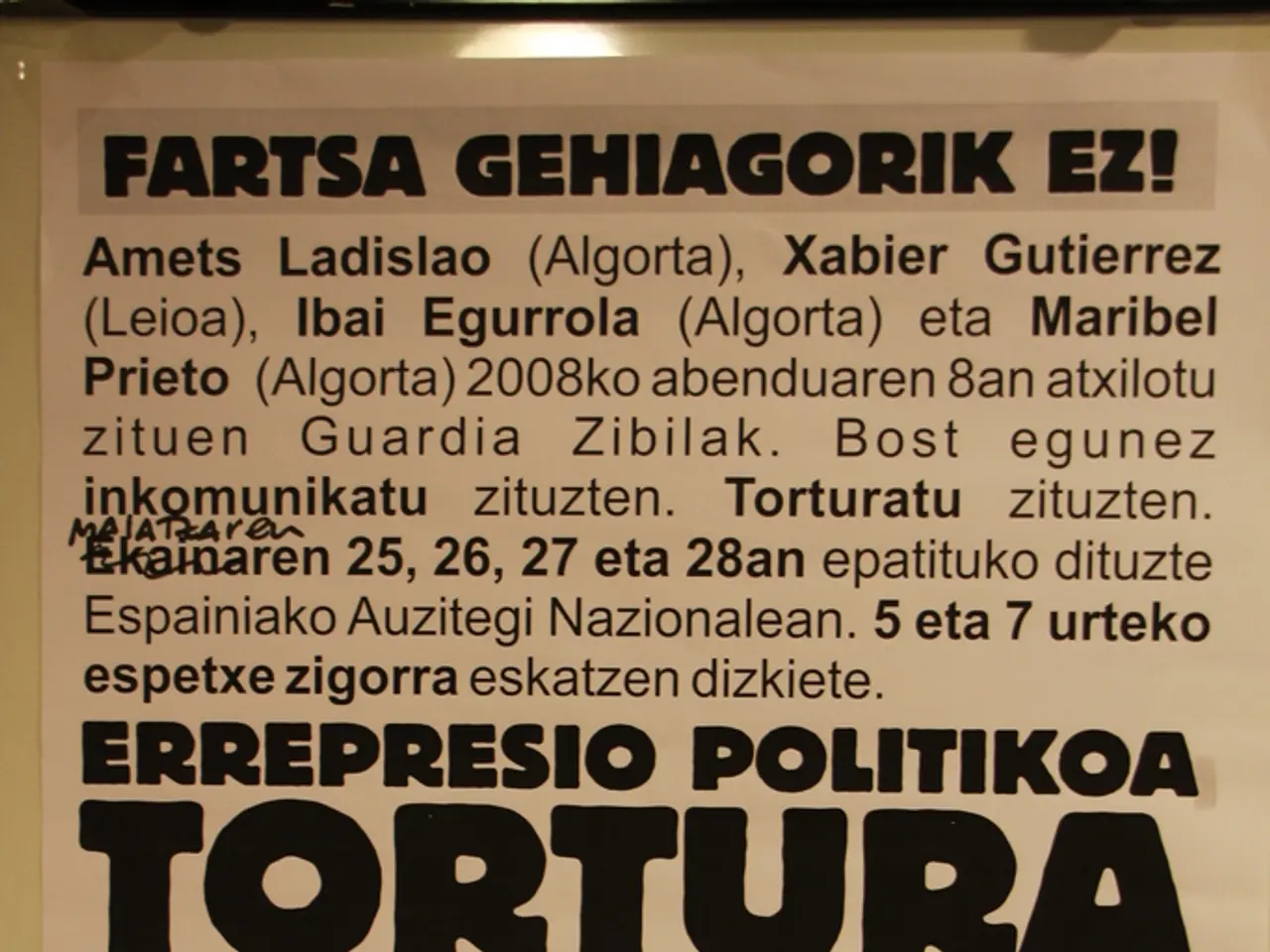For the first time, an evangelical has been acknowledged as a victim under the spanish dictatorship
In a significant move, Carmen Hombre Ponzoa, a Protestant teacher and trade unionist from Jerez de la Frontera, became the first officially recognised evangelical victim of Franco's dictatorship in Spain. The event took place on 10 December in Madrid, with high-profile attendees including Pedro Sánchez, the President of the government, Ángel Víctor Torres, the Minister of Territorial Policy and Democratic Memory, and María Jesús Montero, the First Vice-President of the government.
Carmen Hombre Ponzoa, born on 30 December 1903, was a prominent figure in the Jerez area, teaching in several schools. Tragically, she was shot while eight months pregnant in August 1936, and her husband, Juan Máximo Salazar, a fellow teacher, was also shot. Their one-year-old son was the only survivor, rescued and secretly handed over to her sister.
The repression of Franco's regime included limitations on freedom of worship and expression, seizure of property, and discrimination that led many Protestants to go into exile. Apart from arrests and executions, such as that of Carmen Hombre and her husband, and Atilano Coco, a friend of the famous author Miguel de Unamuno, evangelical schools were closed, and property was seized.
While most historical accounts commonly highlight broader repression under Franco without detailed focus on evangelical victims specifically, this event marks a significant step in acknowledging the suffering of these religious minorities. The repression of Franco’s regime targeted Republicans, leftists, liberals, and any groups opposing the regime's ideology, which included non-Catholic religious communities.
Recognition of victims from Franco’s dictatorship has been ongoing, especially after Spain’s transition to democracy beginning in the late 1970s and the eventual passage of the Historical Memory Law (2007) which acknowledged victims of the dictatorship. However, this law and related efforts primarily recognise Republican victims and mass graves, with less information available on religious minorities like evangelicals.
Spain officially celebrates the Day of Remembrance and Tribute to all Victims of the Civil War and Franco Dictatorship on 31 October. The event honouring Carmen Hombre Ponzoa is a testament to the nation's ongoing commitment to acknowledging and remembering all victims of Franco's repressive regime.
[1] Franco’s regime (1939–1975) was marked by political, religious, and social repression. Although the regime was closely aligned with the Catholic Church, it also persecuted various groups, including political opponents, minorities, and religious dissenters such as evangelicals or Protestant groups, who were generally marginalized or suppressed under Franco's traditional Catholic nationalist state.
[2] Most historical accounts commonly highlight broader repression under Franco without detailed focus on evangelical victims specifically. The regime’s repression targeted Republicans, leftists, liberals, and any groups opposing the regime's ideology, which included non-Catholic religious communities.
[3] Recognition of victims from Franco’s dictatorship has been ongoing, especially after Spain’s transition to democracy beginning in the late 1970s and the eventual passage of the Historical Memory Law (2007) which acknowledged victims of the dictatorship. Still, this law and related efforts primarily recognise Republican victims and mass graves, with less information available on religious minorities like evangelicals.
[4] No direct evidence from the search results indicates when or how the very first official recognition of an evangelical victim under Franco occurred. This likely emerged gradually as part of Spain’s broader efforts to address repression and may be recorded in specialized historical or reconciliation documents not included here.
- The event honoring Carmen Hombre Ponzoa, a prominent evangelical teacher in Jerez de la Frontera, marks a significant step in official recognition of evangelical victims under Franco's dictatorship, shedding light on the religious minorities who were marginalized or suppressed during Franco's traditional Catholic nationalist rule.
- Although ongoing recognition of victims from Franco’s dictatorship includes Republican victims and mass graves, policy-and-legislation such as the Historical Memory Law (2007) has primarily focused on Republican victims, with less information available on religious minorities like evangelicals, including specific instances of war-and-conflicts that resulted in the persecution and execution of evangelicals.








